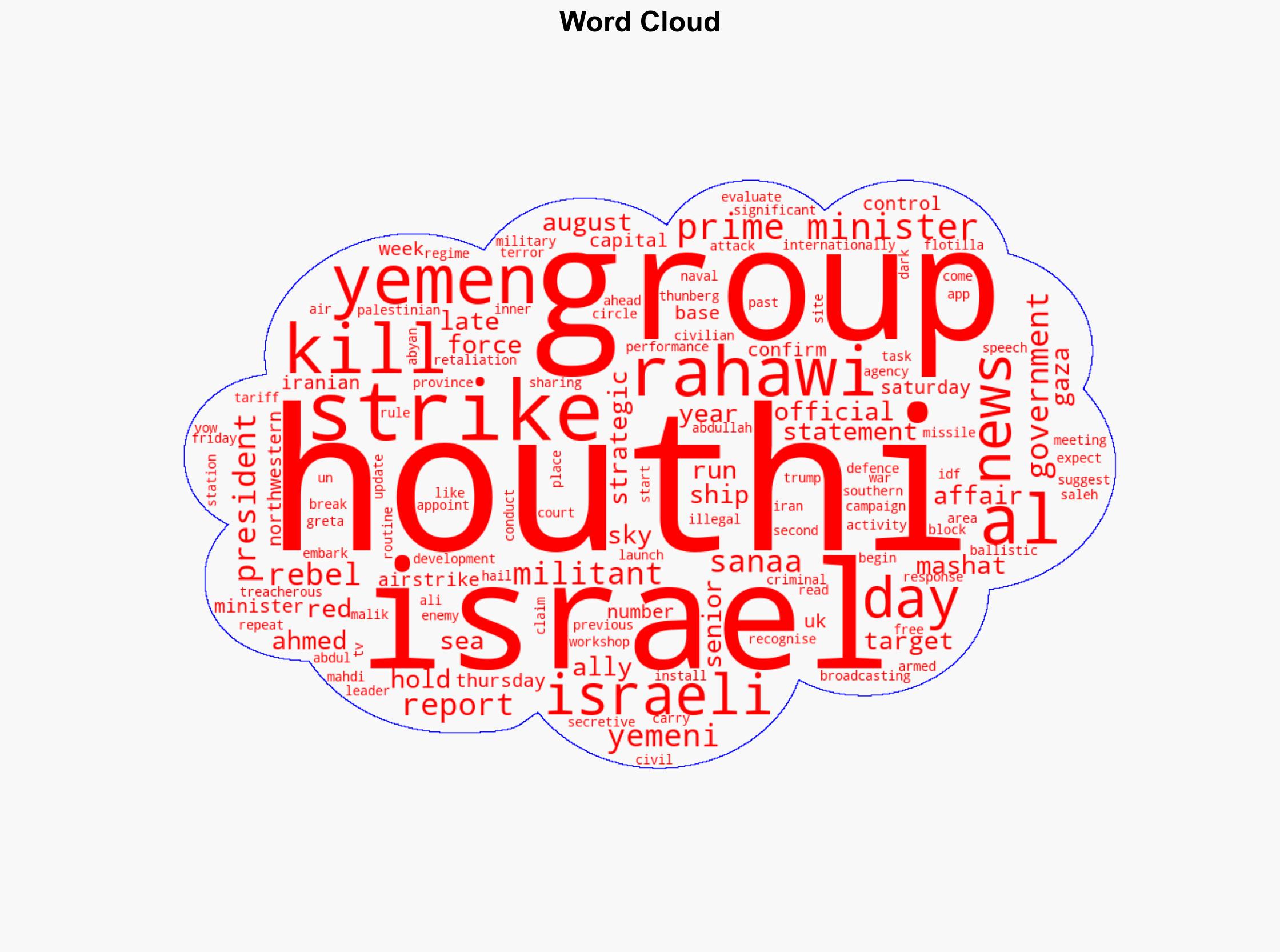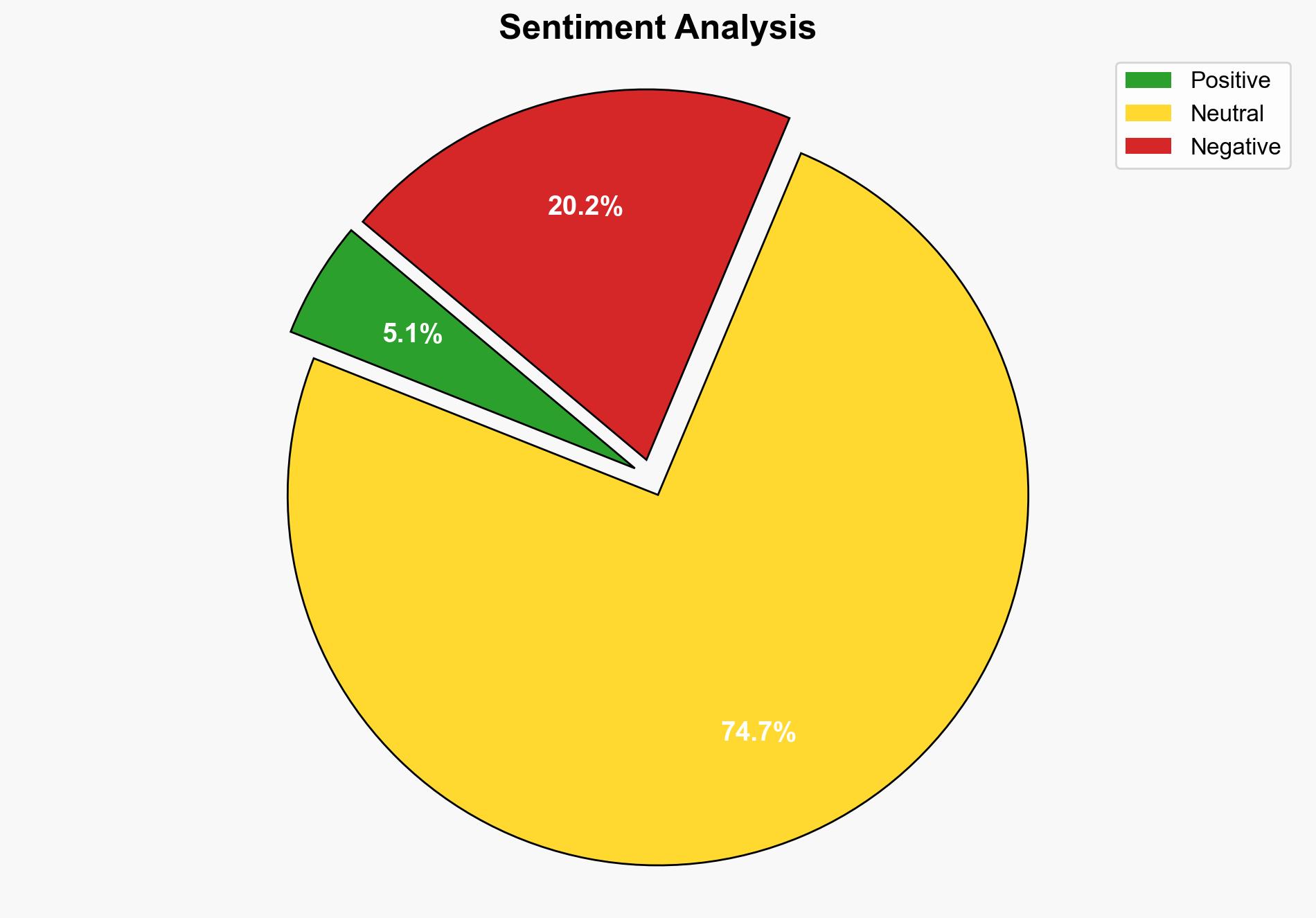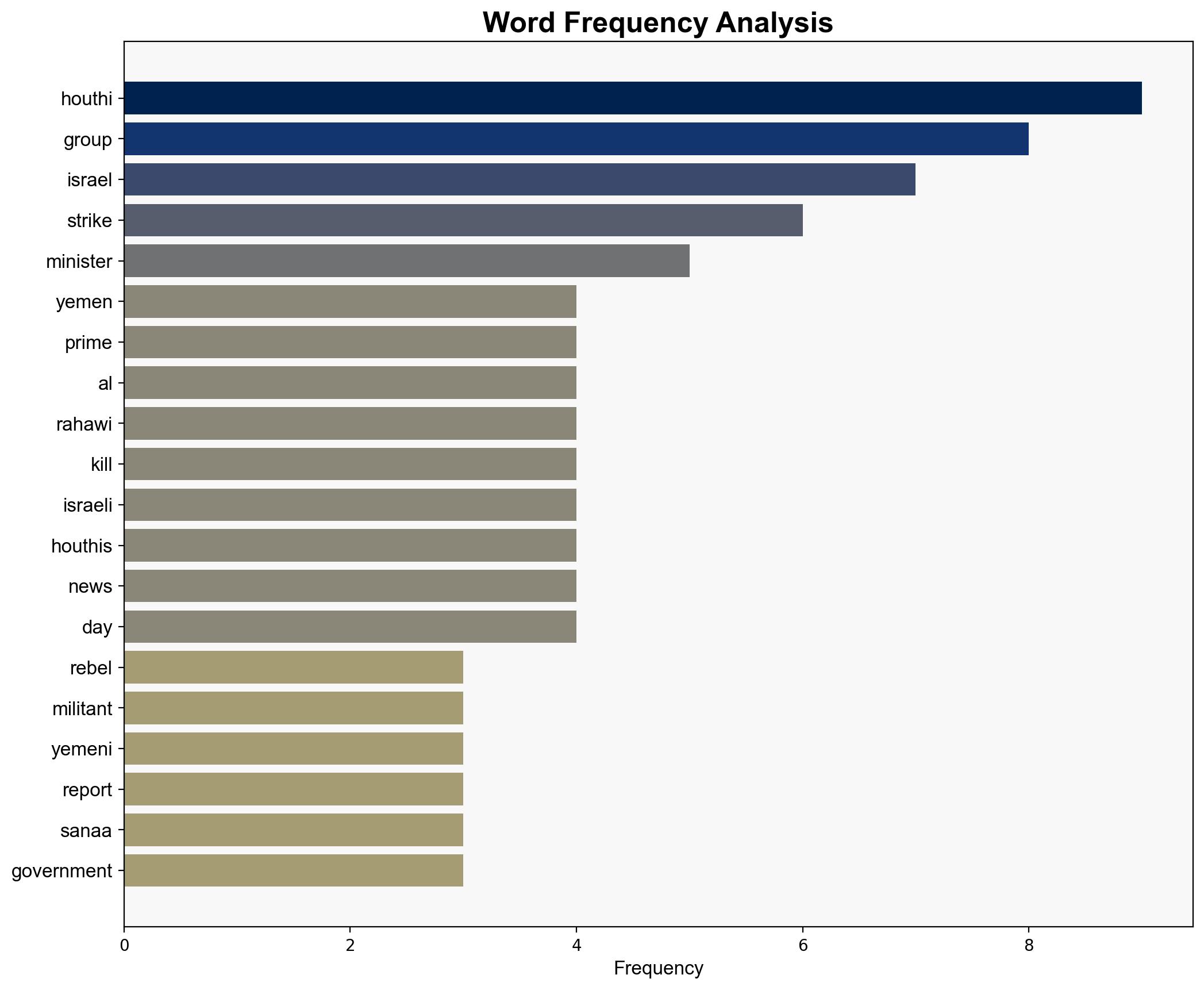Houthi rebel prime minister killed in Israeli airstrike militant group says – Sky.com
Published on: 2025-08-30
Intelligence Report: Houthi rebel prime minister killed in Israeli airstrike militant group says – Sky.com
1. BLUF (Bottom Line Up Front)
The most supported hypothesis is that the Israeli airstrike was a targeted response to recent Houthi aggression, specifically the launch of ballistic missiles towards Israel. This assessment is made with moderate confidence due to the corroboration from multiple sources and the strategic context of ongoing hostilities. Recommended action includes monitoring for retaliatory actions by the Houthis and preparing for potential escalation in the region.
2. Competing Hypotheses
1. **Hypothesis A**: The Israeli airstrike was a preemptive measure to neutralize a strategic threat posed by the Houthi leadership, specifically targeting Ahmed al Rahawi due to his role in recent attacks on Israeli interests.
2. **Hypothesis B**: The airstrike was a broader strategic move by Israel to weaken the Houthi’s military capabilities and disrupt their operations, with the killing of Ahmed al Rahawi being collateral rather than a primary objective.
Using ACH 2.0, Hypothesis A is better supported due to the timing of the strike following the Houthi missile launch and the specific mention of targeting strategic Houthi figures.
3. Key Assumptions and Red Flags
– **Assumptions**: It is assumed that the information from the Houthi group regarding the death of Ahmed al Rahawi is accurate. Another assumption is that Israel’s strategic objectives align with neutralizing immediate threats.
– **Red Flags**: The lack of independent confirmation of Ahmed al Rahawi’s death and the potential for misinformation from both sides. The possibility of exaggeration or propaganda in Houthi statements should be considered.
4. Implications and Strategic Risks
The incident could lead to increased hostilities between Israel and the Houthis, potentially drawing in regional allies such as Iran. There is a risk of further missile attacks or asymmetric warfare tactics by the Houthis. Economically, disruptions in the Red Sea shipping lanes could occur. Geopolitically, this could strain Israel’s relations with other Middle Eastern countries and impact ongoing diplomatic efforts.
5. Recommendations and Outlook
- Enhance intelligence gathering on Houthi military capabilities and intentions to anticipate further actions.
- Strengthen regional alliances to deter Houthi aggression and support diplomatic resolutions.
- Scenario Projections:
- Best Case: De-escalation through diplomatic channels, reducing the likelihood of further conflict.
- Worst Case: Escalation leading to broader regional conflict involving multiple state and non-state actors.
- Most Likely: Continued tit-for-tat exchanges with limited escalation, maintaining the status quo of low-intensity conflict.
6. Key Individuals and Entities
– Ahmed al Rahawi
– Abdul Malik al Houthi
– Mahdi al Mashat
– Ali Abdullah Saleh
7. Thematic Tags
national security threats, cybersecurity, counter-terrorism, regional focus





